Free Ontario G1 Practice Questions | G1 Practice Test 2025
What does this sign mean?
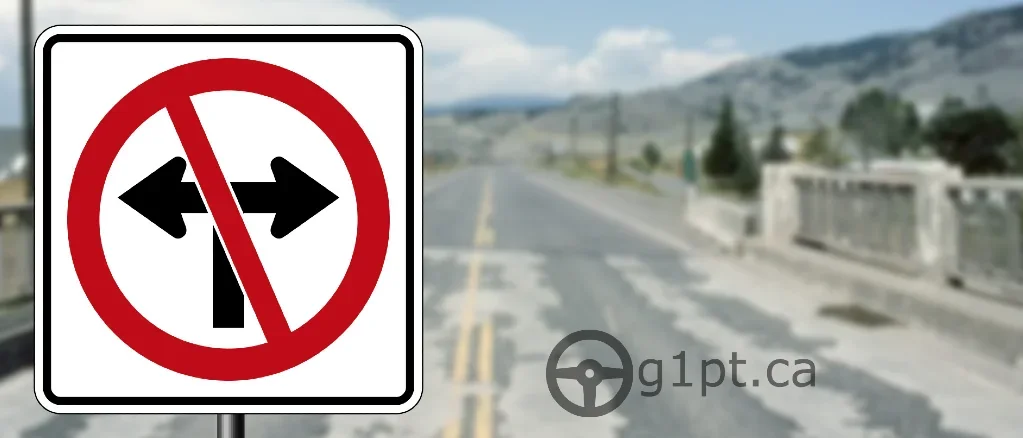
Left and right turn not
allowed.
Do not go straight.
Do not reverse.
No vehicle allowed.
Turning left or right is prohibited.
What does this sign mean?
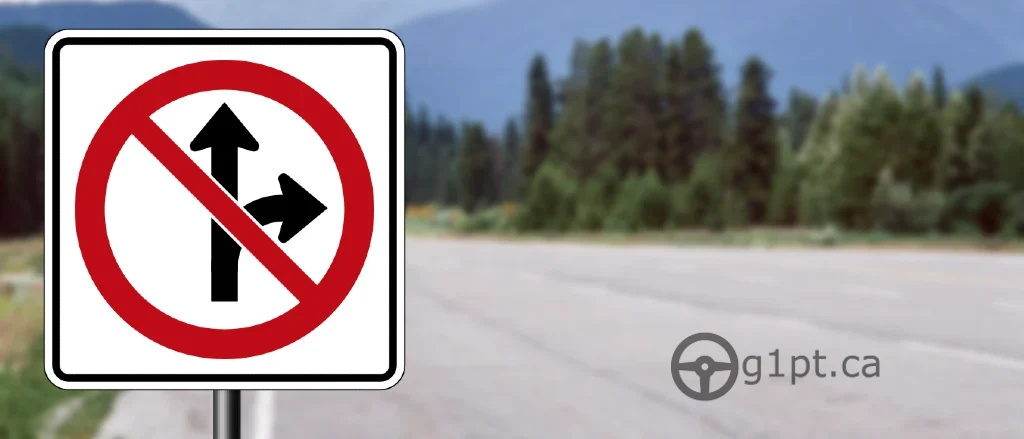
Right turn is allowed.
Left turn and going
straight not allowed.
Both A and B.
Only going straight.
Taking a left turn or going straight is
not allowed.
What does this sign mean?
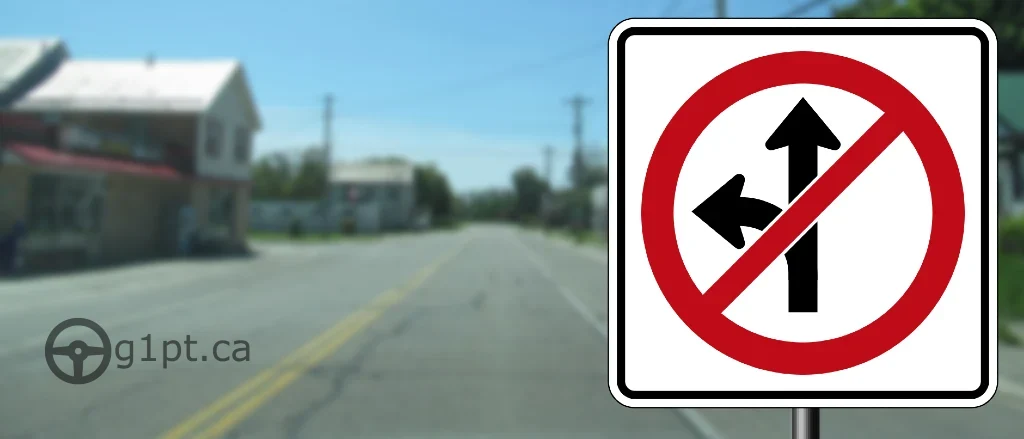
Left turn is allowed.
Right turn and going
straight not allowed.
Only going straight.
Both A and B.
Taking a right turn or going straight is
not allowed.
What does this sign mean?
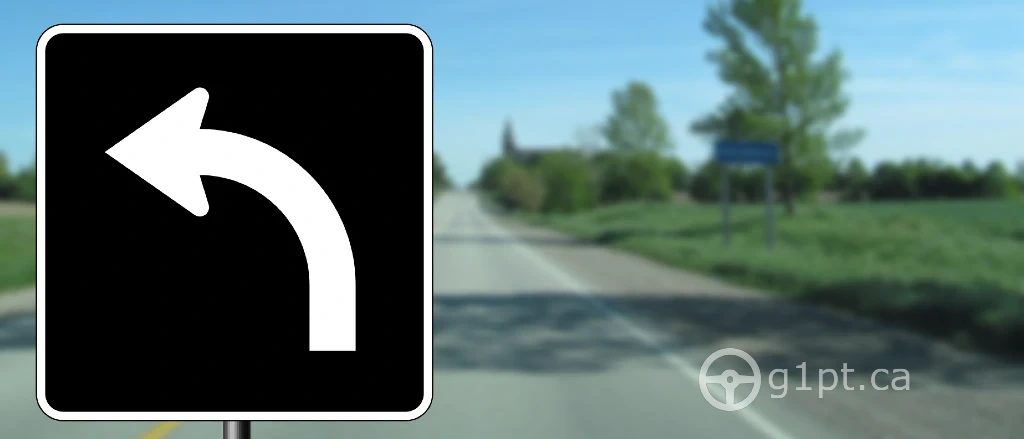
Exit the highway from left
lane.
You may go straight.
Left turn only.
Curve in the road ahead.
Only left turn is allowed.
What does this sign mean?
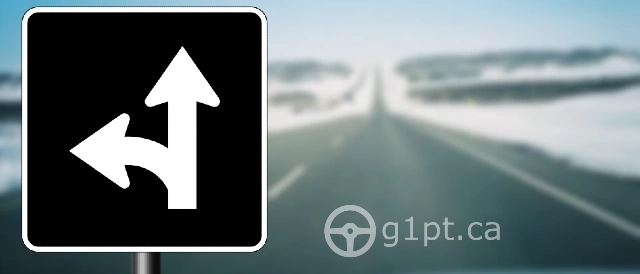
You may turn right.
Go straight or turn left
only.
Both A and B.
None of the above.
Only straight or left turn is permitted.
What does this sign mean?
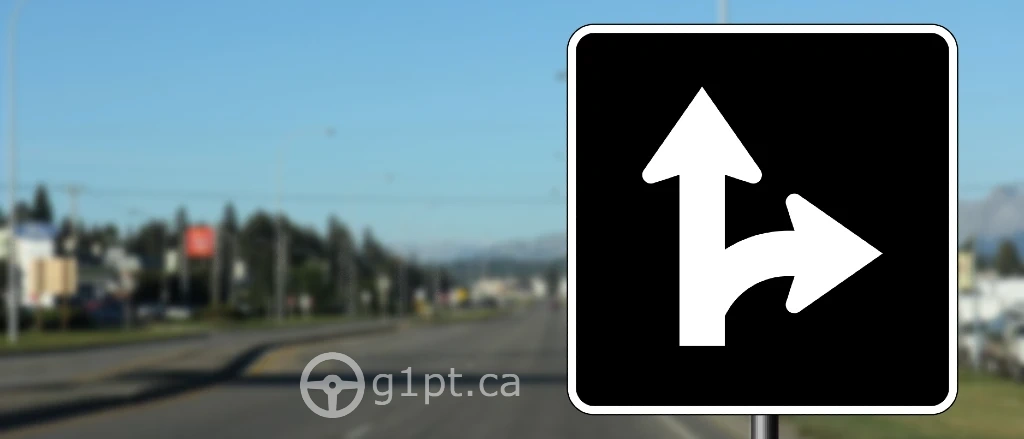
You may turn left.
Go straight or turn right
only.
Both A and B.
None of the above.
Only going straight or turning right is
allowed.
What does this road sign mean?
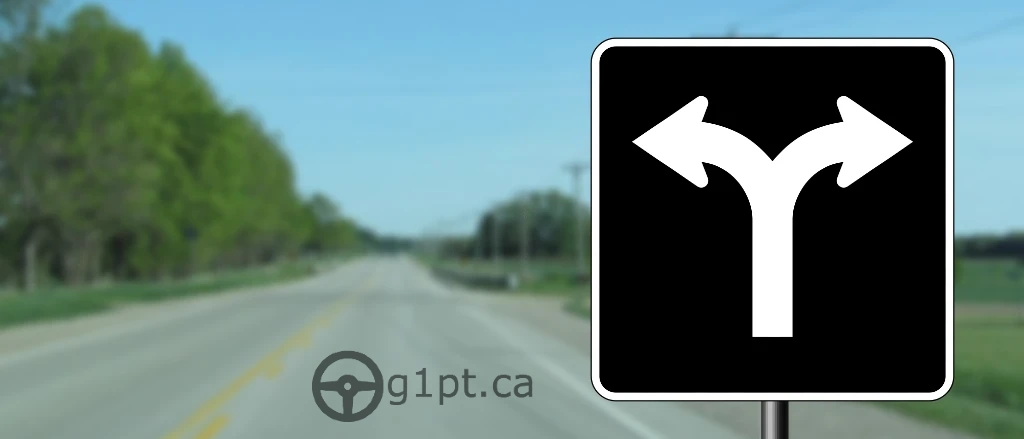
Only left and right turn
allowed.
You may go straight.
Both A and B.
None of the above.
Only left and right turn is permitted.
What does this road sign mean?
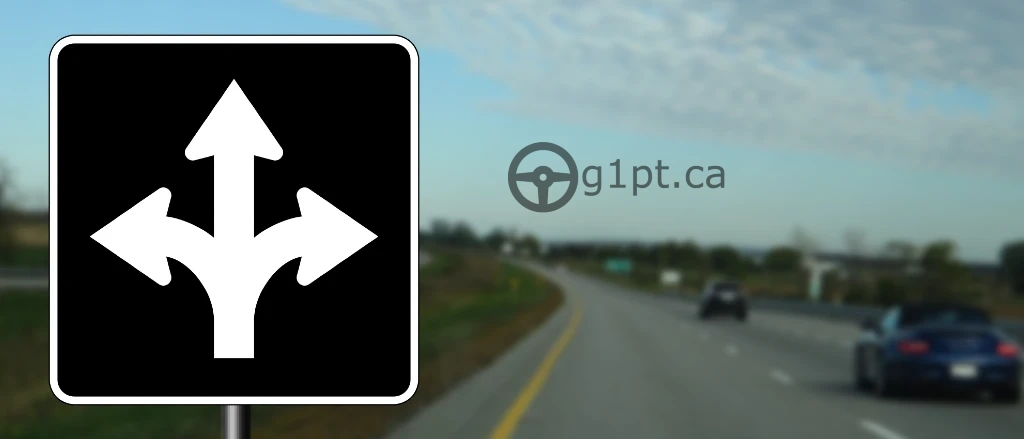
Only going left, right and
straight is allowed.
You may go reverse on
highway.
You are not allowed to
take an exit.
None of the above
Going Left, right and straight is
permitted.
What does this road sign mean?
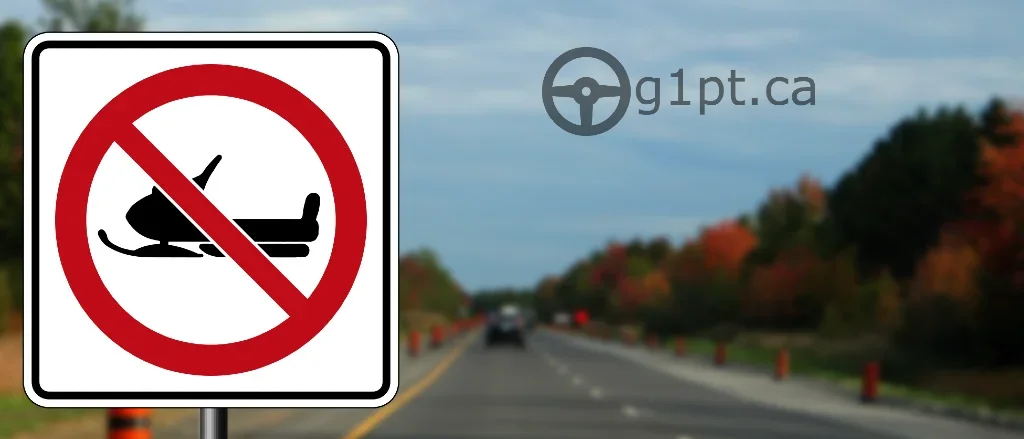
Snowmobiles are not
allowed on this road.
Snowmobiles allowed.
Watch out for
snowmobiles.
Snowmobiles crossing
ahead.
Snowmobiles are not allowed on this road,
fine will be imposed if case of offence.
What does this road sign mean?
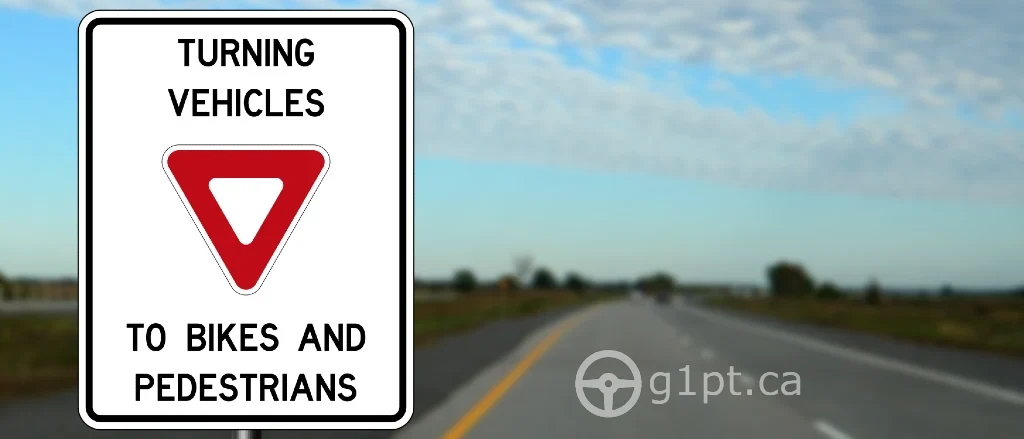
Turning cyclists yield to
vehicles.
Turning vehicles give
way to cyclists.
All vehicles must share
lane with cyclists.
Stop your vehicle for
cyclists.
Cars that are about to take a turn must
yield to cyclists.
What does this road sign mean?
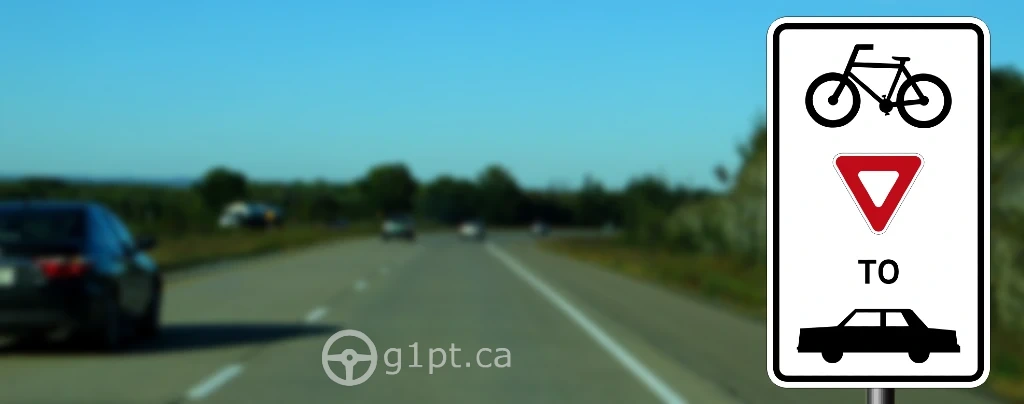
Cars must stop when they
spot a bicycle.
Bicycle yield to cars
sign.
Cars yield to bicycle
sign.
None of the above.
Cyclist must give way to cars.
What does this road sign mean?
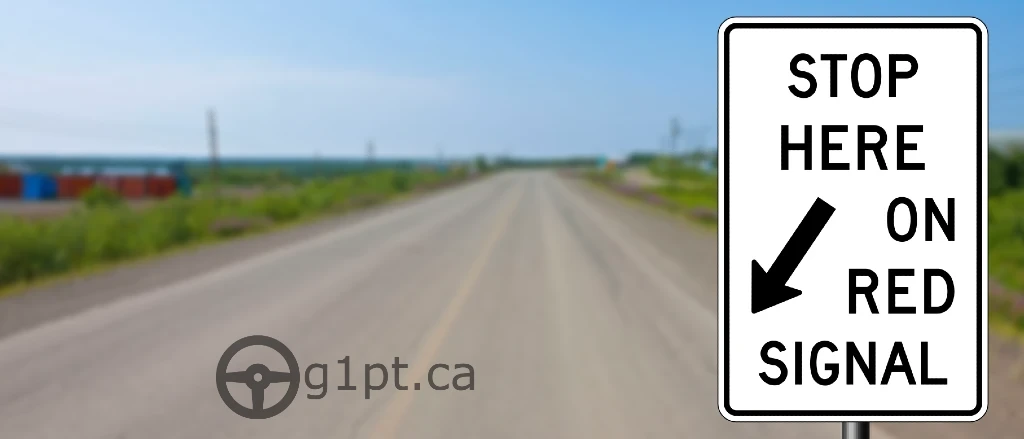
Come to a complete stop
when you see this sign.
Stop on the specified
lane in case of red-light signal.
Slow down your vehicle
when you approach this sign.
Stop your vehicle in any
lane in case of red-light signal.
In case of red light signal, stop on the
pointed lane.
What does this road sign mean?
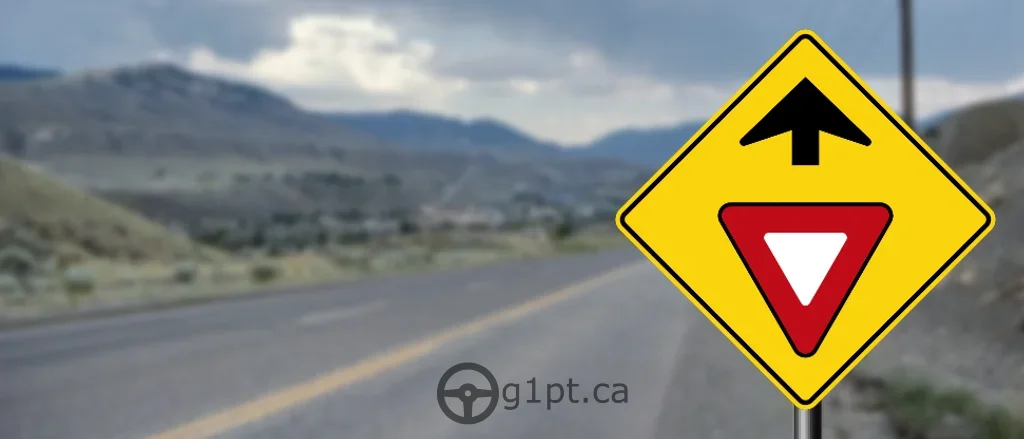
This is a yield sign.
Yield sign ahead.
Stop sign.
Stop sign ahead.
You have to give way to other vehicles,
come to a complete stop if necessary.
What does this sign mean?
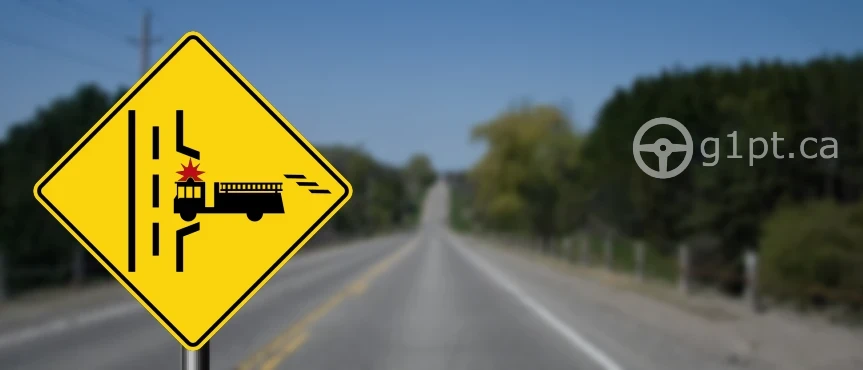
Vehicle may enter from
left side.
Truck bridge entrance.
Fire truck entrance.
None of the above.
If the fire truck is shown on the left
side, it means fire truck entrance is from the left side.
What does this sign mean?
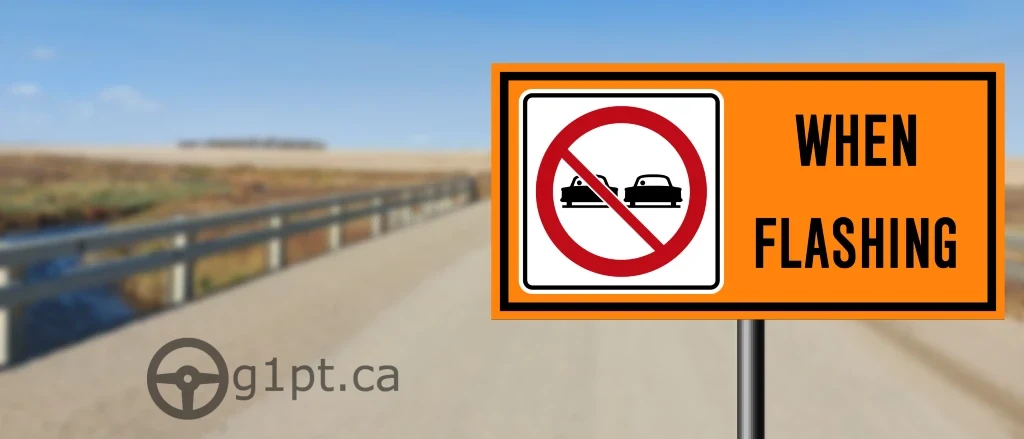
No passing at all times.
No passing when lights
are flashing.
Passing is allowed.
Two vehicles are not
allowed on the bridge at the same time.
Do not overtake another vehicle when
lights are flashing.
What does this sign mean?
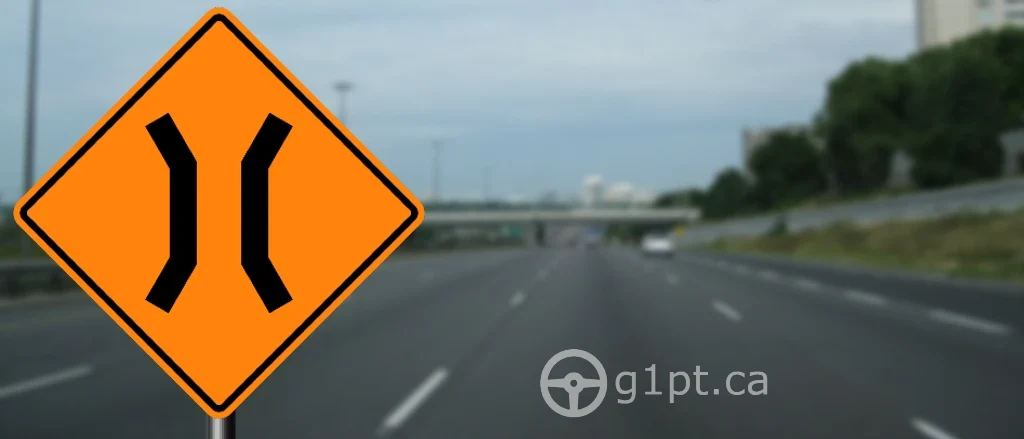
Narrow bridge ahead.
Pavement narrows down
ahead.
Narrow bridge ahead
temporary sign.
Pavement narrows down
ahead temporary sign.
This is a narrow bridge sign for a
limited period of time.
What does this sign mean?
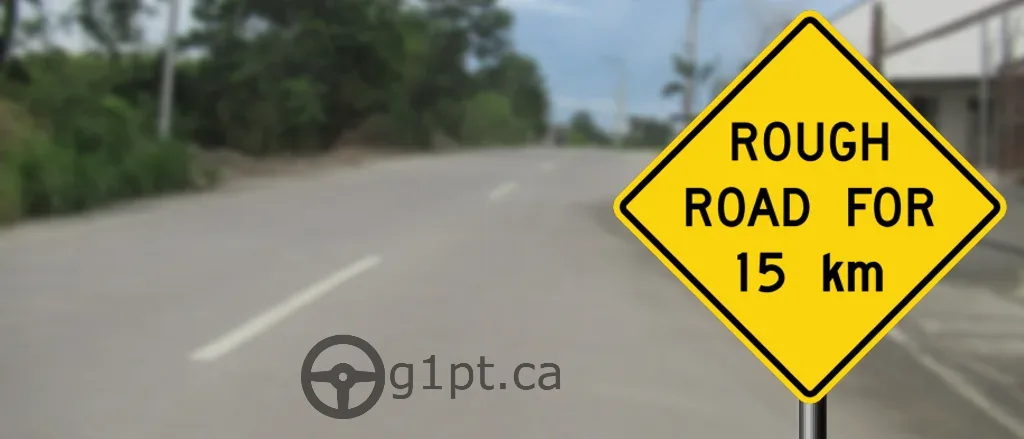
Rough pavement for 15km.
Road blocked after 15km.
Come to a complete stop.
Both B and C.
The pavement is in a bad condition for
15km.
What does this road sign mean?
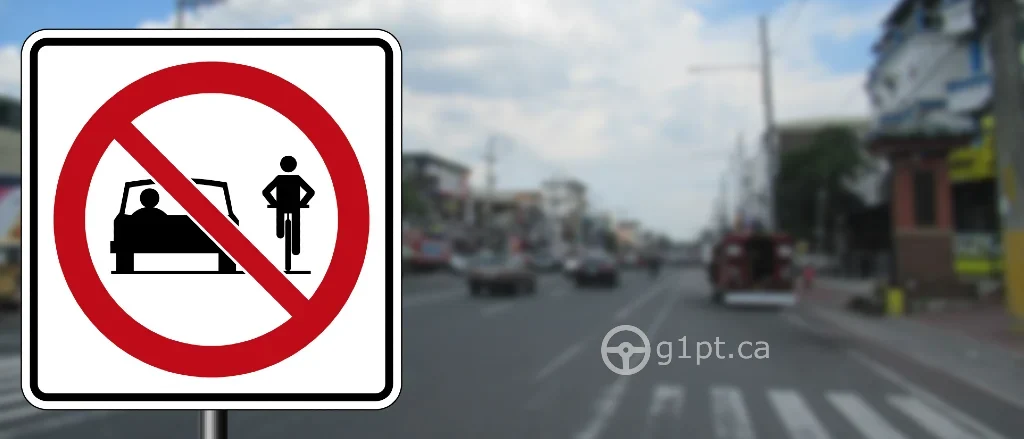
Only motorcycle allowed.
No passing allowed.
Cars and bicycle come to
a complete stop.
Cars and bicycle are
prohibited.
Bicycle and cars are not allowed on this
road.
What does this road sign mean?
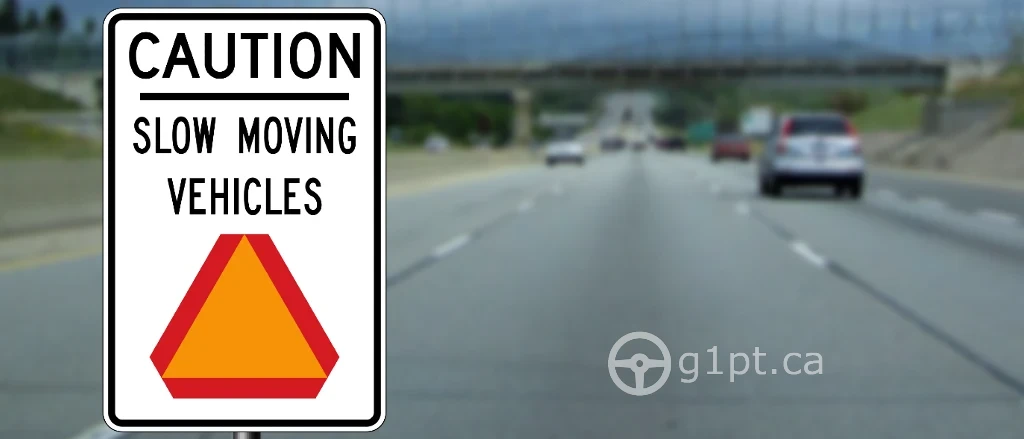
This sign should be put
on a slow moving vehicle.
This means that there
are slow moving vehicle on this road, drive carefully.
Only slow moving vehicle
allowed on this road.
None of the above
There are vehicles on this road that
moves at a speed of less than 40km/h.
What does this road sign mean?
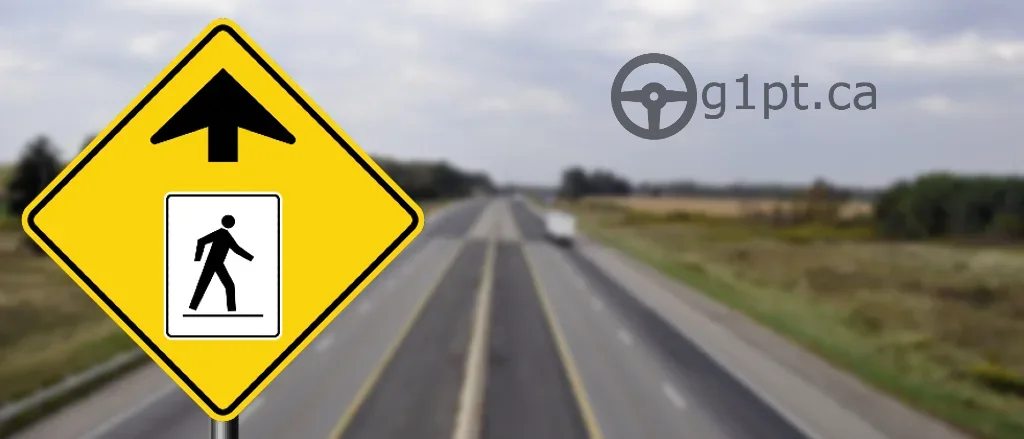
Pedestrian crossing
regulatory sign ahead.
School zone.
Drive carefully, watch
out for pedestrians.
Both A and C.
There is a pedestrian crossing sign
ahead.
Suppose an individual lose control over his car and it
goes off road:
Tightly hold steering
wheel.
Press breaks slowly and
keep the vehicle under control.
Get on the road when
vehicle is under control.
All of the above.
You have to keep note of all of the
above points in case of out of control vehicle.
What should you keep in mind while entering a highway
from private road?
Match your speed to the
highway speed.
Give way to the vehicles
already going the highway, they have the right-of-way.
Be careful of other
drivers on the highway as they are going at a higher speed.
All of the above.
You have to take care of all of the
mentioned points while entering the highway from a private road.
Demerit points expire from your license after how many
years?
1 year.
2 years.
3 years.
5 years.
Demerit points on your license will
automatically expire after 2 years.
As a G1 or G2 license holder, if you accumulate 9 or
more demerit points within 2 years, how long your license will be suspended?
For 15 days.
For 30 days.
For 45 days.
For 60 days.
if you accumulate 9 or more demerit
points within 2 years, your license will be suspended for 60 days.
What is correct about Highway 407?
A superhighway that
connects all highways across Ontario.
It is an express toll
route.
Highway connection
Canada to USA.
None of the above.
Highway 407 is an express till route
which is a fast route.
Suppose you get exhausted while driving your vehicle,
what should you do?
Speed up so you can
complete your journey before time.
Drink some coffee and
continue driving.
Get to your some and get
some rest.
Stop your car and get
some rest, continue driving afterwards.
Do not drive your car while you are
exhausted.
Under what condition your vehicle has highest chance
to slip on the road?
Hailstorm.
After 30 minutes of rain.
First rain, after a dry.
spell
After 2 hours of rain.
After the first rain, your car has the
highest chance of slipping.
Most of car slips occur due to:
Wet road.
Tires with less pressure.
Driving fast.
None of the above.
Do not drive fast, it is one of the most
common reason for slipping vehicle on the road.
how can you control your vehicle if it starts
slipping?
Apply emergency brakes.
Press brakes heavily.
Steer in the direction
of slip.
Continue steering in
direction of the road.
You must steer your vehicle in the
direction of the slip to gain control over your vehicle.
Suppose a new driver gets caught while drinking and
driving, For how long his license will be suspended?
20 days.
30 days.
40 days.
50 days.
If a new driver is caught while drinking
and driving, license will be suspended for 30 days.
What should you do in case of roadway blockage right
after an intersection?
Continue straight through
intersection.
Enter the intersection
slowly and move with caution.
Use horn.
Come to a complete stop
before entering intersection. Do not block the intersection.
You should drive carefully, give the
right-of-way to others so road don't get blocked.
what should you do if lights are not working at an
intersection?
Come to a complete stop
till lights start working.
Move your vehicle
carefully.
Treat it a four way stop
sign.
None of the above.
You should treat the intersection as a
four way stop sign if the lights stop working.
What does a broken white line mean on street?
Separation for one way
street.
Separation for two way
street.
Both A and B.
None of the above.
Broken line separates the street whether
it's one way or two-way street.
What should you keep in mind while approaching a
construction area?
Speed up and pass through
dangerous area faster.
Come to a complete stop,
proceed when construction is complete.
Use horn to aware
construction workers.
Slow down, yield the
right-of-way.
You should slow down your vehicle and
drive carefully near a construction area.
What is the two second law?
It is used to calculate
speed of vehicle.
It is used to determine
if your car is unintentionally tailgating.
Both A and B.
None of these.
The 2 second law while driving helps the
driver determine if their car is at a minimum safe distance from the car in the front.
Hydroplaning could be prevented by:
Ensure tires have proper
air pressure.
Drive slowly and
carefully while driving in rain.
Ensure tries have proper
grip.
All of the above.
Take care of all of the above points for
preventing hydroplaning.
Suppose an individual accumulates 15 demerit points
and license gets suspended, what will happen after 30 days?
Points on his driver
license is reduced to 12.
Points on his driver
license is reduced to 10.
Points on his driver
license is reduced to 7.
Points on his driver
license is reduced to 5.
After 30 days, his demerit points will
be reduced to seven.
if your have G1 or G2 license and you accumulate 9
more demerit points during a 2 year period, after getting your license suspended for 60
days what will happen?
Your record will be
reduced to 4 points.
Your record will be
reduced to 5 points.
Your record will be
reduced to 6 points.
Your record will be
reduced to 7 points.
After a 60 day license suspension,
demerit points will be reduced to 4.
Suppose you see a flashing yellow traffic light above
intersection, what does it mean?
It means speed up and
cross road as it will turn red.
Come to a complete stop
and move when it turns green.
Proceed your vehicle
with caution.
Both A and B.
A flashing amber light at the
intersection means that you can continue moving with caution.
If you are towing a trailer with your vehicle, which
of the following are you not permitted to carry on you trailer?
Weapons.
Passengers.
Chemicals.
None of these.
Passengers are not allowed in the
trailer while you are towing it with a vehicle.
Report Card
Total Questions Attempted: 0
Correct Answers: 0
Wrong Answers: 0
Percentage: 0%
Practice Test 5
This Ontario G1 practice test will help you prepare for the G1 exam and makes it easy to get your G1 driver's license. A one-time cost of $158.25 covers a test package that includes a G1 knowledge test, as well as G2 and G exams. The exam has 40 questions, split into two halves of 20 each. The first portion focuses on traffic signs, while the second focuses on road regulations.
To pass both portions of the exam, you must get 80% (or 16 marks) in each. At 16, you may take your driving test at an MTO-approved test facility near you.